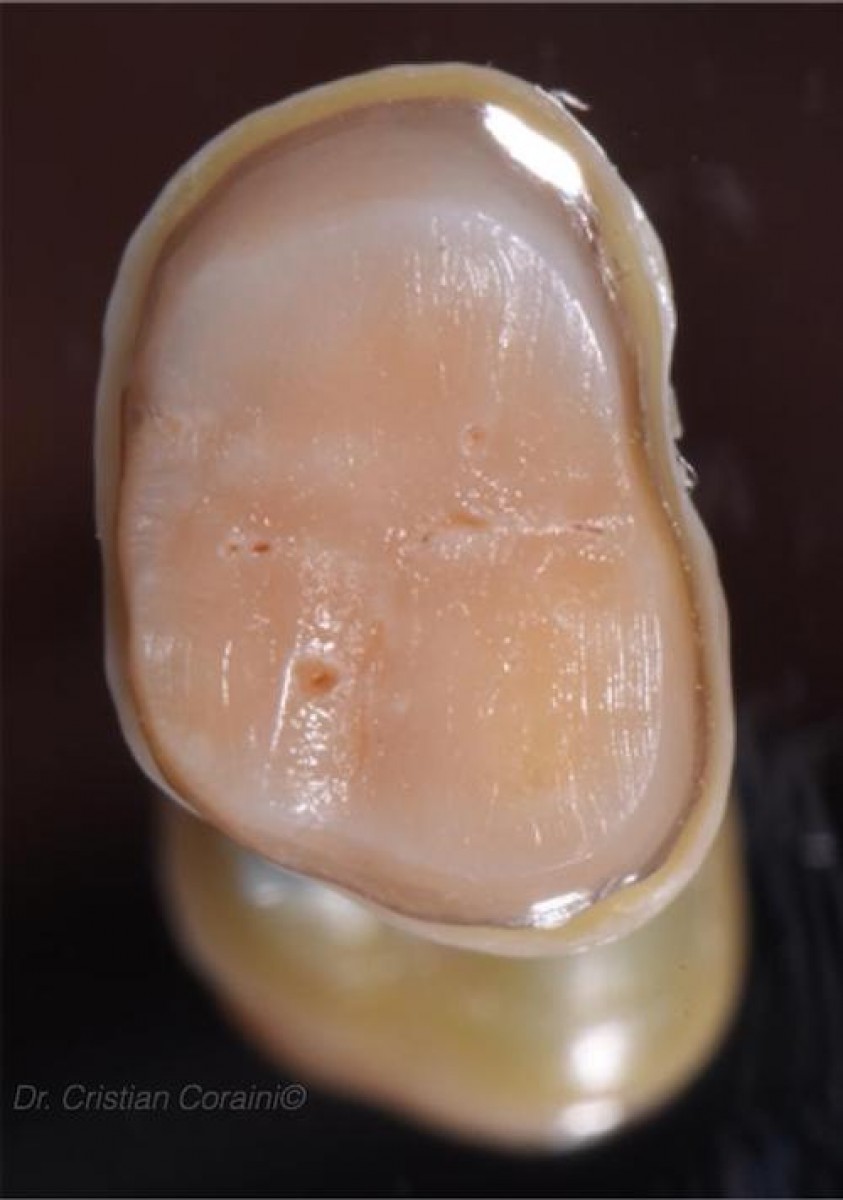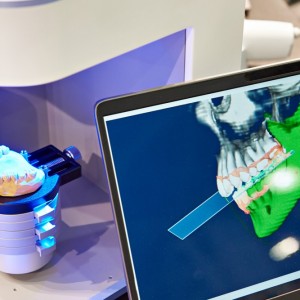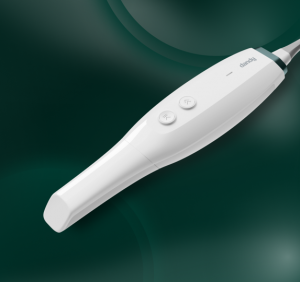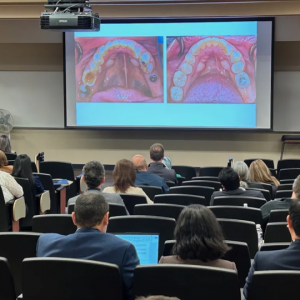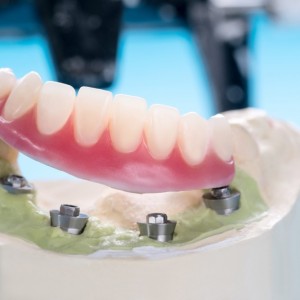
Which preparation do you have to choose for the best marginal adaptation for lithium disilicate CAD/CAM crowns?
Simona Chirico
The increased aesthetic demand, without sacrificing the preservation of biological structures, has led to the development and use, in recent years, new generations of ceramics. These include lithium disilicate (LGD).
LDG restorations can be manufactured making use of either lost-wax hot-pressing techniques or computer-aided-design/computer-aided manufacturing (CAD/CAM) milling procedures. Among the several CAD/CAM ceramic materials, IPS e.max CAD exhibited superior mechanical properties and better internal fit than that of the other ceramic blocks used for all ceramic restorations.
Different factors play a significant role in determining the success of a restoration: luting technique, adhesive system, thickness of the ceramic restoration, the preparation design.
The study published in the Journal of Esthetic Restorative Dentistry by Angerame et al., evaluate the fracture resistance and marginal quality of maxillary molars restored using LDG occlusal veneers with two preparations designs: 90° rounded shoulder and chamfer.
MATERIALS AND METHODS
Sixteen extracted maxillary molars were assigned to two groups (n = 8). In group 1 (G1), the teeth received a preparation for a conservative full-coverage occlusal veneer restora- tion with a 90 rounded shoulder margin. In group 2 (G2), the teeth underwent a 1-mm cusp reduction with a marginal chamfer. LDG restorations (IPS e.max CAD) were obtained with the Cerec 3 CAD/CAM system and luted with Variolink II cement. After thermomechanical aging (1 250 000 cycles), the specimens were loaded to fracture. A semiquantitative marginal seal evaluation was performed observing resin replicas of the specimens at the scanning electron microscope. Cement thickness was assessed at the stereomicroscope on sectioned specimens. Collected data were statistically analyzed by parametric and nonparametric tests.
RESULTS
The maximum load to fracture was 2395.01 ± 150.96 N in G1 and 2408.39 ± 112.66 N in G2. The fracture pattern was also similar in the two groups, with cracks above the CEJ and it was the most predominant type of restoration failure.
Cement thickness was 132 ± 38 μm in G1 and 150 ± 41 μm in G2.
As to margin quality assessment, G1 exhibited continuous margins with 96,9% both at the baseline than after aging; instead for G2 at the baseline was 100% and after aging was 93,8%.
CONCLUSIONS
This study demonstrated similar satisfactory performance of the two considered preparations designs for occlusal veneer with LDG. Further in vivo studies are needed to validate the clinical performance of the more conservative preparation design.
(Photo Credit: Dr. Cristian Coraini)
For additional informations:
Influence of preparation designs on marginal adaptation and failure load of full-coverage occlusal veneers after thermomechanical aging simulation
 Related articles
Related articles
Digital Dentistry 04 November 2025
Digitalisation is an expanding field in dentistry and implementation of digital teaching methods in dental education is an essential part of modern education.
News 03 November 2025
Dandy, a fully digital dental lab, today unveiled two new products for digital dentistry: the revolutionary Dandy Vision intraoral scanner and the powerful.
Editorials 02 October 2025
U-M School of Dentistry hosts national symposium on digital dentistry education
The University of Michigan School of Dentistry hosted a national Digital Dentistry Educators Symposium last week that drew faculty and leaders from 35 dental schools around the country.
Digital Dentistry 29 August 2025
Digital dentistry: The new state of the art — Is it disruptive or destructive?
Summarizing the new state of the art of digital dentistry, opens exploration of the type and extent of innovations and technological advances that have impacted – and improved – dentistry.
Endodontics 15 August 2025
Feasibility of Implementing Digital Dentistry Section in Dental Clinic of a Military Centre
Digital dentistry is not the wave of the future, it is happening now. Whether a dentist embraces the new technology determines the quality of treatment and possibly his future; for this reason,...
 Read more
Read more
Prosthodontics 17 November 2025
The purpose of this report is to describe a new technique to fabricate and deliver an implant-supported fixed prosthesis to the patient on the day of surgery, and to propose a protocol for the...
Editorials 17 November 2025
The Langkamp Allison Award recognizes a Pitt Dental Medicine third-year dental student interested in pursuing a career in dental education.
Products 17 November 2025
VELMENI today unveiled VELMENI Voice, an AI-driven voice recognition tool designed to transform periodontal charting and clinical documentation.
News 17 November 2025
Angelalign Technology Inc. (6699.HK) (“Angel”) recently announced the expansion of its flexible iOrtho platform to include direct integration with the Dexis, Shining 3D, and Panda scanners.
News 17 November 2025
Following the first FDA clearance for technology that measures internal mobility in teeth, Perimetrics CEO and Chairman Robert Hayman is once again leading dentistry into a new era with InnerView, a...


